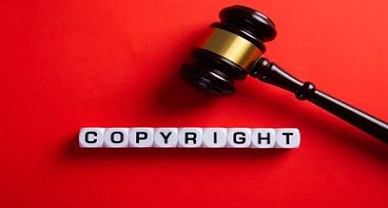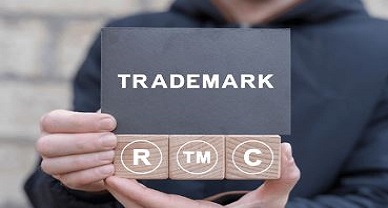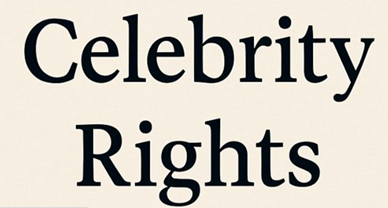Trademark Refusal & Copyright Registration Differences
INTRODUCTION
In the United States as well as in India, application for a trademark may be rejected for several different reasons. The difference might be that these specific grounds for refusal may be different in each of the jurisdictions, however, there are some general refusals applied to both of them.
GENERAL REFUSAL REASONS FOR A TRADEMARK
- Likelihood of Confusion: The first reason for refusal is that it is often considered that the use of the trademark will lead to confusion with similar trademarks. If the goods, services, or any other relevant aspect covered by a proposed trademark is similar to any recognized trademark in a manner likely to cause confusion, the application will be rejected.
- Descriptive or Generic Terms: It is technically possible to register a trademark that is descriptive of the products that they refer to or services that they characterize, or even generic symbols that are familiar to the public. Trademark: should be easily distinguishable and should be enough to point out the origins of the goods or services.
- Geographically Descriptive Terms: It is important to note that trademarks that include words that are geographically descriptive (like names of cities or countries) will not be eligible for registration if they create the impression that the products or services originating from other places are originating from the mentioned geographical location.
- Immoral or Scandalous Matter: Use-based refusals are also applicable where trademarks are composed of immoral or scandalous matter, as it counterproductive to register trademarks that are against public policy or morality.
- Deceptive Matter: If a trademark creates confusion with regard to the character, quality, or origin of the goods and the services, it may be refused registration.
- Merely Surnames: Where the trademark contains only a surname, then registration might be opposed on the basis of the fact that such surnames are easily available with no other meaning.
- Functional Features: In particular, trademarks which either consist of the shape or other characteristics of the goods or services which is solely to be used for the packaging, sheltering, securing of the goods or delivery and use of the services may not be registered.
- Likelihood of Dilution: Finally, it should be noted that in the United States trademarks identical or similar to the famous one may be refused registration if they are likely to cause the dilution of the distinctive character of the famous trademark, regardless of the likelihood that confusion is likely to occur.
ADDITIONAL GROUNDS OF TRADEMARK REFUSAL IN INDIA
In addition to the common grounds for refusal listed above, the Indian Trade Marks Act, 1999, provides for some specific grounds for refusal, including:
Prohibition on Registration of Certain Emblems and Names: The Act empowers the central government to prevent some identities like name or depiction of Mahatma Gandhi, the national flag, and the national emblem from being registered.
Prohibition on Registration of Offensive or Obscene Matter: It also worth to note that the marks that contain scandalous matter or matter that is likely to anger the religious sentiments of people will not be registered.
Prohibition on Registration of Well-Known Marks: The Act bars any registration of trademarks that are similar to or in close resemblance with other well-known trademarks when the use of the later trademark causes prejudice in relation to repute, recognition, and status of the owners of the well-known trademark.
TRADEMARK REGISTRATION AND COPYRIGHT REGISTRATION: KEY DIFFERENCES
Although both involve registration and fall under the registration of intellectual property, trademark registration and copyright registration are two distinct legal protections for different forms of creativity, and they operate for distinct reasons. This distinction is especially important for those who create and develop ideas and business projects, as it gives a basic understanding of what kind of protection is needed.

Definition and Scope
- Trademark Registration: A trademark that a business can put on the products that they offer in the market is a word, phrase, symbol or a design associated with the origin of the products. Trademark registration gives legal protection to the owner of the mark to obtain exclusive rights to use it in relation to certain goods or services while depriving the other people from using the similar marks which can create confusion among the public.
- Copyright Registration: Copyright, on the other hand, protects original works of authorship including literary, artistic, graphic, musical, dramatic, or electronic works that are fixed in any tangible medium of expression. This includes all books, artworks, pieces of music, and other creations in any field or discipline. When a work is registered it grants the owner the sole right over the work in that he or she can copy the work, distribute it, perform it, display it or produce a new work from the original work.
Subject Matter
- Trademark Registration: Trademarks refer to the symbols such as brand names or logos or even catch phrases that are utilized on commodities and services that sets them apart from the rest. They do not safeguard the literal products or services themselves but safeguard the images that are linked to them.
- Copyright Registration: Copyright is a legal right that exists in Words, music, art, literature and other creative pieces of work. Copyright does not apply to concepts, information or processes but to how the information may be organized.
Duration of Protection
- Trademark Registration: Trademark protection is said to be perpetual in as much as the mark owner is continue to use it in business and/or renewal of its registration mark. The renewal is done for a period of ten years but since the mark is active and the registration is continuously renewed the mark can be protected for as long as one desires.
- Copyright Registration: First being that the ownership of copyright subsists during a limited period only. In most countries, many of which are the United States, and India, the copyright comes with period of 70 years after the death of the author. In the case of works produced by corporations, in stander is 95 years starting from the date of publication or 120 years starting from the date of creation, whichever is the shorter.
Registration Process
- Trademark Registration: Trademark registration applicants file their applications through the trademark offices like the USPTO or the Controller General of Patents, Designs and Trade Marks India. This basically means that the application has to contain an image that represents the mark, as well as the list of the goods or services that the mark is associated with. It usually takes not less than three to four months to register a new business in the country.
- Copyright Registration: In most legal systems, there is no need for a formal application because the copyright protection is acquired by the work at the moment its creation reaches a fixed medium. Still, one should register with the Copyright Office for the further opportunities, such as suing for statutory damages and attorney fees in case of infringement. Currently there are two categories of works that can be registered, namely novels and translations and each application requires an application form, one copy of the work and registration fee. The duration depends on the complexity of the case but, on average, it can last for about several months.
Rights Granted
- Trademark Registration: Trademark registration entitles the owner to use the mark only in relation to the products mentioned in the application, or services. It also enables the owner to terminate the use of similar marks to avoid confusion with proprietor’s brand.
- Copyright Registration: The copyright provides the owner the legal right to control reproduction, distribution, performing, displaying and creating new work based on the original work. These rights enable the owner to decide more on the usages of that work and to gain from the exploitation of that work financially.
Renewal and Maintenance
- Trademark Registration: An important thing to note is that a trademark is valid for use only when it has been registered and this always have to be renewed from time to time. For example trademarks in United States are perpetually renewable, after every 10 years. Trademark rights can be lost if the applicant fails to follow up by renewing the trademark on time.
- Copyright Registration: Copyright applies as soon as the work is created, duplicated or stored in any electronic format, and there is no need for its renewal. However, registration with the Copyright Office as the work is mandatory for an action for infringement. Copyright owners also may wish to deposit their works with copyright offices when they wish to establish the evidence of their rights.
CONCLUSION
Thus, although the grounds that may be used to refuse license may differ between the United States and India, the rationale or reasons for this action are the same. Touching the refusal of the registrations of the trademarks, it can be refused registration if the mark is likely to deceive the public, a mark which is descriptive or generic in character, a mark which comprises immoral or scandalous matter and a mark that is against the public policy. It is important for trademark applicants to grasp these grounds because this way they will be able to register trademarks that fulfill the requirements.
To summarise, trademark registration and copyright registration are two types of protection of the rights to an intellectual property that has different goal and protects different categories of produced items. Trademark registration safeguards the use of names, logos, and slogans that identify the products and services in the market, and Copyright registration safeguards working of authorship. Using the information contained in this article, it possible to define that identification of the main differences between these two types of protection is essential for creators and companies, which care about the protection of their IPs and getting the most from their trademarks.
Author:–Kaustubh Kumar, in case of any queries please contact/write back to us at support@ipandlegalfilings.com or IP & Legal Filing.
REFERENCES
- https://www.indiafilings.com/learn/absolute-grounds-for-refusal-of-trademark-registration/
- https://www.compliancecalendar.in/learn/trademark-status-refused
- https://cleartax.in/s/grounds-for-rejection-of-a-trademark
- https://www.theipmatters.com/post/grounds-for-refusal-of-trademark-registration-in-india
- https://cleartax.in/s/trademark-vs-copyright-differences


